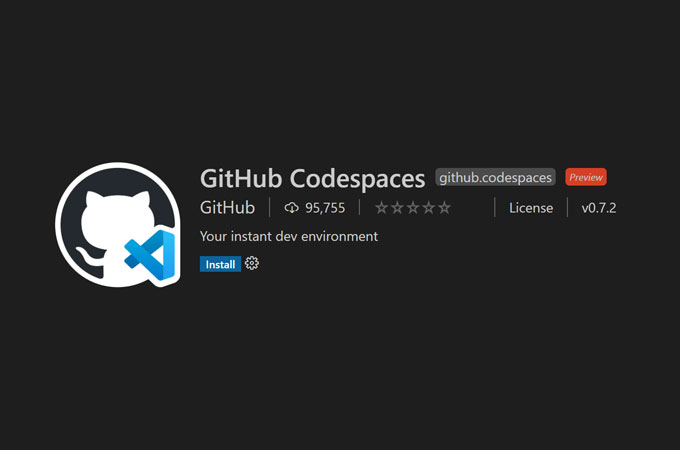In a world where setting up a development environment can feel like wrestling a hydra—endless dependencies, flickering terminals, and that one stubborn proxy that just won’t cooperate—GitHub Codespaces emerges as the quiet powerhouse that’s changing the game. Launched back in 2020 and steadily evolving, this cloud-based tool from Microsoft-owned GitHub has hit a sweet spot in 2025, especially with tighter integrations for AI-assisted coding and smoother global access. It’s not flashy like the latest AI hype, but for developers tired of local headaches, it’s a godsend: instant setups, seamless VS Code connectivity, and a free tier that’s generous enough to make you wonder why everyone isn’t raving about it. If you’ve ever lost hours to config woes or battled network gremlins, Codespaces feels like a warm hug from the cloud—reliable, efficient, and surprisingly affordable.
Why Codespaces Feels Like a Hidden Gem in Today’s Dev World
At its heart, GitHub Codespaces spins up a fully configured, secure cloud VM tailored to your repo, ditching the local setup drudgery. No more installing runtimes, tweaking paths, or debugging why your Docker build failed on Tuesday but worked on Monday. Everything’s handled via dev containers—simple JSON files in your repo that define the environment, from OS to extensions, ensuring every teammate (or you on a new machine) gets the same setup. GitHub’s docs highlight how this “configuration-as-code” approach creates repeatable spaces, cutting onboarding time by up to 80% for teams, based on user surveys from their 2025 State of the Octoverse report.
For folks in regions like China, where the Great Firewall turns Docker pulls into a nightmare of “image not found” errors and proxy fiddles, Codespaces is a lifesaver. Running on Microsoft’s global Azure infrastructure, it bypasses local network restrictions by handling container builds in the cloud— no need for VPNs or custom mirrors that flake out. A quick scan of dev forums shows countless tales of relief: One engineer shared how switching to Codespaces eliminated weeks of proxy tweaking for a cross-border project. It’s not magic, but it’s practical—leveraging Azure’s edge locations to keep latency low, even for international teams.
The real joy kicks in with local VS Code integration. Fire up a codespace, and it connects like a remote SSH session, letting you code in your familiar editor while the heavy lifting happens in the cloud. This shines for AI tools: Plug in GitHub Copilot or third-party extensions like Cursor (a VS Code fork with built-in AI), and you get shortcuts galore—auto-completions, chat-based refactoring, even agent modes that tackle issues directly from GitHub. No local GPU drain or install hassles; the codespace’s resources (scalable from 2 vCPUs to beasts with GPUs) power it all. Recent updates in April 2025 added Copilot’s “agent mode” right from issues, where AI analyzes your repo and suggests fixes, blending seamlessly with Codespaces for a fluid workflow.
And the kicker? You skip the cloud server circus. Forget provisioning AWS EC2 instances, fiddling with security groups, or scaling IAM roles—that’s all abstracted away. Codespaces auto-suspends after inactivity, resuming in seconds, and ties into GitHub Actions for CI/CD without extra setup. It’s secure too, with built-in GitHub auth, isolated VMs, and no local vulnerabilities. For hobbyists or pros, this means focusing on code, not infrastructure, evoking that pure “flow state” coding buzz.
Hands-On: Jumping into Codespaces Without the Fuss
Codespaces is tailor-made for the general public—students prototyping apps, freelancers juggling clients, or teams syncing remotely—so getting started is a cinch. It’s free for personal GitHub accounts with 60 core hours monthly (about 180 hours on the lightest tier), covering most casual use without a dime. Here’s a straightforward guide to unleash it:
Sign Up and Prep: Head to github.com and log in (free account works). Ensure VS Code is installed locally—download from code.visualstudio.com if not. For AI perks, grab the GitHub Copilot extension from the marketplace (free trial available).
Create a Codespace: Open a repo (yours or a fork). Click the green “Code” button, then “Codespaces” tab, and hit “Create codespace on main.” It spins up in 1-2 minutes—watch the progress bar. If your repo has a devcontainer.json (or GitHub auto-detects one), it’ll configure automatically; otherwise, pick a template like Node.js or Python.
Connect from VS Code: In the codespace view, click “Open in VS Code” (or install the “Codespaces” extension in VS Code and use Command Palette > “Codespaces: Connect”). It tunnels in—no port forwarding needed. Your local shortcuts, themes, and extensions (including AI like Copilot) carry over.
Code and Collaborate: Edit files, run terminals, or debug as usual—the cloud handles builds. For Docker-heavy projects, containers run natively without proxy tweaks. Use Copilot by typing comments like “// Generate a REST API endpoint” for instant code. Share via the “Share” button for real-time collab.
Manage and Save: Stop the codespace when done (it suspends, not deletes). Resume anytime—your changes persist. Track usage in GitHub Settings > Billing > Codespaces. Pro tip: For China users, select an Asia-Pacific region during creation to minimize latency.
It’s that effortless—turning “I can’t get this running” into “Let’s build” in minutes. Battery life on your laptop? Unaffected, since compute’s remote.
The Bigger Picture: Why Codespaces Deserves the Spotlight
GitHub Codespaces isn’t revolutionizing AI overnight, but it’s quietly making development more inclusive and less frustrating, especially in 2025’s hybrid work era. With free access leveling the field for global devs—bypassing hardware barriers and network woes—it’s fostering creativity without the gatekeeping. Sure, heavy users might hit paid tiers ($0.18/hour for basics), but for most, it’s “nearly free” magic. As one overlooked tool steps into the light, it reminds us: The best innovations often solve the everyday pains we didn’t know we could escape. If you’re still wrestling local setups, give it a spin—you might just wonder how you coded without it.

